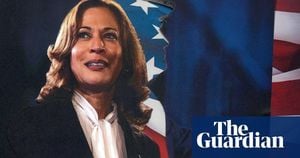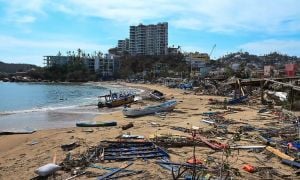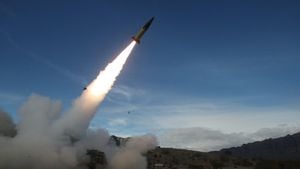Germany is on the brink of political transformation as the ruling coalition faces the repercussions of its collapse. Chancellor Olaf Scholz is following the footsteps of global leaders like Rishi Sunak and Emmanuel Macron by calling for early elections, stirring concerns around the country's governance amid rising discontent. With elections set for February 2025, much is at stake for both the ruling Social Democrats (SPD) and their coalition partners - the Greens and Free Democrats (FDP).
Recent disputes over issues like additional funding for the war in Ukraine have escalated tensions within Scholz's coalition, resulting in the political crisis. Scholz's attempt to ease borrowing restrictions to support military expenditure was met with resistance from Finance Minister Christian Lindner, who pushed for cuts instead. This internal conflict showcases larger systemic problems plaguing the coalition, such as Germany’s stagnant economy and soaring energy prices.
Germany is grappling with economic difficulties exacerbated by sanctions related to the Ukraine war. The repercussions are evident, with many manufacturers considering plant closures or relocating abroad. The unions, particularly following Volkswagen's announcement of factory shutdowns, have kept quiet, leading to frustrations among workers. Citizens have watched as real wages remain lower than pre-2020 levels, with inflation still impacting essentials.
An overwhelming dissatisfaction brews among voters, who view the government as out of touch. Polls suggest the SPD faces the potential of becoming the third-largest party post-elections, overtaken by the strong opposition Christian Democrats (CDU) and the rising far-right Alternative for Germany (AfD). Many voters are resorting to the strategy of voting for parties they dislike the least, as discontent climbs across the spectrum.
The SPD currently stands at risk of dwindling support, with polls indicating potential losses to the smaller parties. The Left Party, which has roots tracing back to former communist ideologies, finds itself at such low polling (around 3%) it may not re-enter parliament. The fragmentation of the leftist voter base, including Sahra Wagenknecht's recent coalition building through her new party, the "Sahra Wagenknecht Alliance" (BSW), has left the traditional Left Party struggling to redefine its role.
Wagenknecht, previously co-leading the Left Party, launched her new political entity focusing on renowned issues such as anti-militarism and reevaluated immigration policies. Despite operating under the banner of the newly formed BSW, it is yet to be seen whether it can maintain solidarity among the traditional leftists or if it will attract enough external support to surpass the 5% threshold required for parliamentary representation.
Wagenknecht's BSW observed notable success during the European elections with 6.2% of the vote, significantly overshadowing the 2.7% garnered by the Left Party. This split forces the latter to rethink its approach as it faces existential threats from both the BSW and the AfD, which is predicted to capture considerable quantities of seats at the expense of the traditional left.
The upcoming elections not only reflect dissatisfaction with the ruling parties but also portend possible shifts within Germany's political alignment, including the potential rise of coalition experiments. The CDU is latching onto these developments, hoping to secure enough seats to prevent complex alliances with other parties, especially the AfD, which refuses cooperation from most of the major parties.
With significant concerns surrounding defense policy and immigration at the forefront, the political battles shaping Germany's immediate future will likely come down to both economic stabilization and ideological positionality.
While the traditional left wrestles with fragmentation, the specter of the AfD looms large, creating anxieties about the potential normalization of far-right policies. With its growing popularity, especially among discontented voters searching for alternatives, the AfD poses significant challenges to the political consensus.
The broad political fragmentation is indicative of disarray, as parties appear to struggle with their identities and visions. Voters, dealing with rising costs and economic uncertainty, seem eager for clear leadership to navigate Germany's turbulent waters.
Within this framework, discussions around migration reform and foreign aid—particularly concerning military support for Ukraine—are bound to dominate public discourse. The urgency for effective governance has never felt more tangible, positioning the 2025 elections as pivotal for the nation’s direction.
What became evident lately is the solid desire among Germans for anti-war stances and pragmatic fiscal policies. Signs of change, evidenced by the new alignments among the opposition and the emergence of parties willing to challenge the status quo, reflect this growing sentiment. With the political atmosphere so volatile, curious observers and participants alike will be watching with bated breath as the political stage is set for February.
The forthcoming elections will not only reflect current grievances but could also establish new political dynamics, potentially reshaping how various parties strategize to reach their voter base. A focus on genuine humanitarian concerns and local needs will be the real measure of political success as factions cling to survival.



